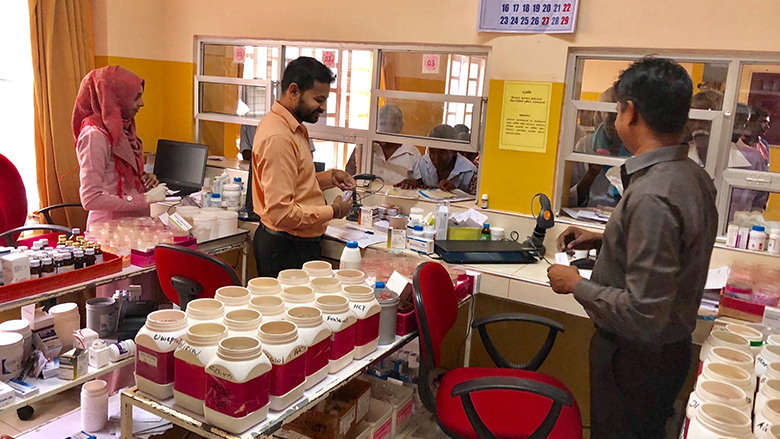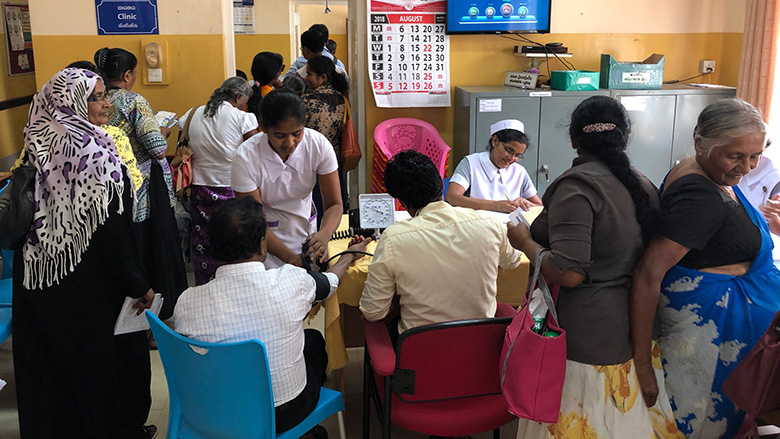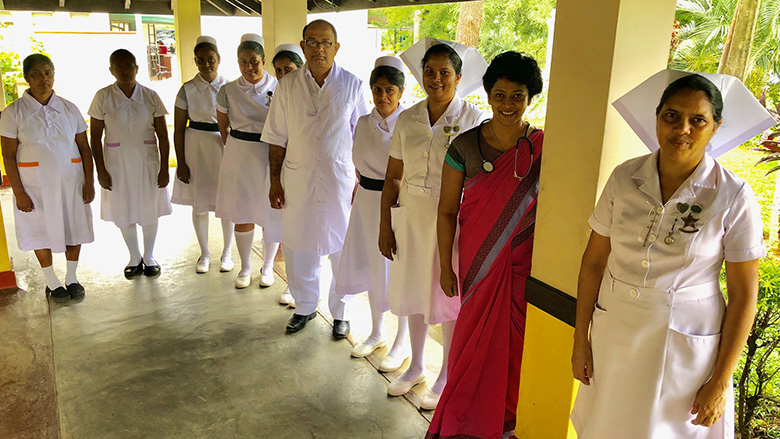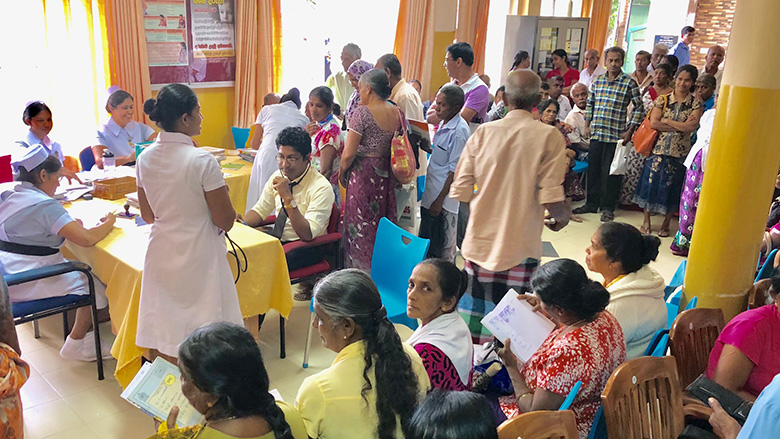Solution
To address these challenges, the World Bank is helping support the implementation of the country’s National Health Development Plan, which is improving the health sector to meet middle-income country standards through technical and financial assistance. It aims to upgrade the standards of performance of the public health system and enable it to better respond to the challenges of malnutrition and non-communicable disease. Achieving this will be done through improving:
- The quality of maternal and child healthcare delivery
- Providing more and better emergency care
- The prevention and control of non-communicable diseases
- Innovation, results monitoring, and capacity building in the health sector
The project supports the Government of Sri Lanka to reach the adult population to create awareness about the risk factors of non-communicable diseases and provide for early detection and management of chronic diseases. It supports the improvement of quality of care for pregnant women and under-five children; and reaches out to facilitate timely and quality care being provided for all emergencies and accidents. The ministry of health and provincial health care staff have benefitted from capacity building programs that help them do their work more effectively.
“I’ve worked here for 20 years and I’ve seen a big difference in terms of the quality of care for patients and accountability of our service as the hospital has transitioned from a district to Base Hospital.” -Sister Sharma (on the right), Nurse of the District Base Hospital Theldeniya in Central Province.
Results
The Second Health Sector Development Project has helped Sri Lanka push forward to tackle health areas that need additional attention, such as nutrition and non-communicable diseases. In addition, the project has enhanced and updated the skills and knowledge of health staff across the country and to further improve the quality and efficiency of health services through 20 indicators that that support the National Health Development Plan. After five years of implementation, the project is expected to be completed in September 2018. To date the project:
- Equipped and trained 4,000 clinics across the country to provide quality maternal and child health (MCH) services.
- Facilitated health and nutrition community support groups led by medical officers to improve health related activities such as infant feeding, exercise, and counseling.
- Furthered the health system’s ability to detect NCDs by having more than 9 out of 10 Medical Officers for Health (MOH) areas – providing preventive and public health services to the grassroots communities -- with at least two functioning Healthy Lifestyle Centers providing NCD screening and counseling services.
- Increased the availability of NCD treatment with 81% of the 890 primary health care facilities having a continuous supply of 16 essential NCD drugs.
- Developed national guidelines of rehabilitation services for disabled persons, with 8 out of 9 provinces equipped with at least one health facility providing these services.
- Provided quality oversight of hospital laboratory services resulting in 95.7% of hospitals now following the quality assurance program for laboratory tests conducted by the Medical Research Institute.
- Helped develop guidelines and policies for management of accidents and emergencies, thereby increase the proportion of centrally and provincially managed health facilities with standard Emergency Trauma Units from less than 10% to 46%, and less than 20% to 77%, respectively.
- Helped health policy and administrators better track and plan for changing healthcare needs by increasing the proportion of centrally and provincially managed health facilities reporting morbidity and mortality data regularly and electronically.
- Increased the focus towards quality improvement in hospitals – such as increasing patient satisfaction, reducing waiting times, and better infection control -- by developing guidelines and policies for the functioning of in-hospital quality management units (QMUs) and realizing fully functioning quality management units in 100% of centrally managed hospitals and 91% of provincially managed hospitals.
Patients now have more access to services throughout hospitals across Sri Lanka.
Bank Group Contribution
The World Bank is supporting the project with $200 million in financing from the International Development Association (IDA). $190 million is allocated to Component I, which supports priority areas through disbursement linked indicators under the National Health Development Plan; and US$10 million is allocated for Component II which supports innovation, result monitoring and capacity building. The total disbursement to date is 87.62%, and is on track to meet full disbursement by the completion of the project in September 2018.
Partners
The Ministry of Health, the Ministry of Local Government and Provincial Councils, and the Government of Sri Lanka.
Moving Forward
The government has requested for a continued engagement of the Bank in the health sector after September 2018, as agreed in the Country Partnership Framework (2016-20), supported by an IBRD Loan. Consequently, the Primary Health Care System Strengthening Project (PSSP) of Sri Lanka has been developed and will be implemented over a period of five years commencing from September 2018. The World Bank financing will be supplemented by the Government of Sri Lanka. The Project Development Objective (PDO) is to increase the utilization and quality of primary health care services, with an emphasis on the detection and management of non-communicable diseases in high-risk population groups, in selected areas of the country. The project will support the development and roll out of policies, standards, and strengthening of various supportive systems. The project will lay the foundation for a more integrated, coordinated, and people-centered delivery system. The project will also continue the results- and systems’ strengthening focus of the Bank’s earlier engagement in the health sector.



